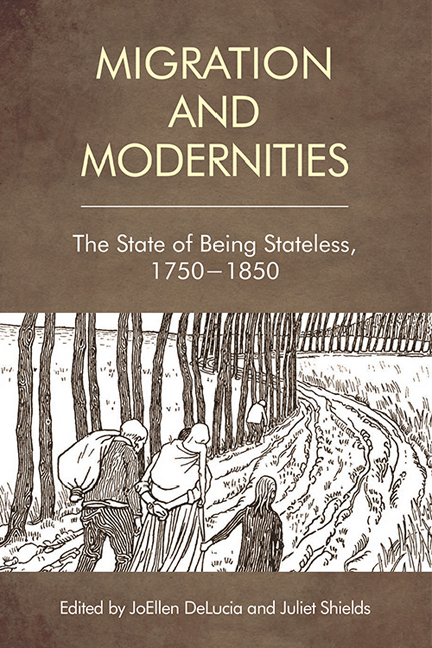4 - At Home on the Prairie? Black Hawk, Margaret Fuller, and American Indian Dispossession
Published online by Cambridge University Press: 05 May 2021
Summary
Eleven years after Black Hawk's so-called war, U.S. transcendentalist author Margaret Fuller toured Illinois prairies where now exiled Sauk and Meskwaki (Sac and Fox) peoples had attempted to reoccupy U.S.-claimed territories east of the Mississippi. In the published account of Fuller's travels, Summer on the Lakes, in 1843, the narrator opines, “How could they let themselves be conquered, with such a country to fight for!” In their writing Fuller and Black Hawk each value the land and acknowledge Native claims to it; but only Black Hawk details how the U.S. dispossessed the Sauk and Meskwaki.
In his narrative Black Hawk pinpoints a highly questionable 1804 treaty negotiated by then Governor of the Indiana Territory William Henry Harrison as the “origin of all our difficulties.” According to Black Hawk, four Sauk and Meskwaki individuals had been sent to St. Louis to make reparations after a fellow tribal member killed a U.S. settler in self-defense. These four individuals were not authorized by their nations to engage in a land deal and, when later questioned, claimed not to have known that they signed away all rights to Sauk and Meskwaki lands east of the Mississippi, including their own villages. Moreover, the accused person at the center of these negotiations was shot as his party prepared to return home. Black Hawk observes, “This is all they could recollect of what had been said and done. They had been drunk the greater part of the time they were in St. Louis. This is all myself or nation knew of the treaty of 1804.” Although many Sauk and Meskwaki peoples actively objected to the treaty's terms and the circumstances of its negotiation, they continued to live on lands now claimed by the U.S. for roughly another twenty-five years. However, with increasing numbers of white settlers arriving in northwestern Illinois in the 1820s and the passage of the Indian Removal Act under President Andrew Jackson's leadership in 1830, regional tensions escalated until Sauk and Meskwaki peoples grudgingly moved west.
When Black Hawk led a group of one thousand Native men, women, and children back across the Mississippi in April 1832 he was not explicitly seeking war, as the presence of women and children indicates. However, he was certainly challenging the U.S. government's right to dictate orders to sovereign Native nations.
- Type
- Chapter
- Information
- Migration and ModernitiesThe State of Being Stateless, 1750–1850, pp. 101 - 122Publisher: Edinburgh University PressPrint publication year: 2018

